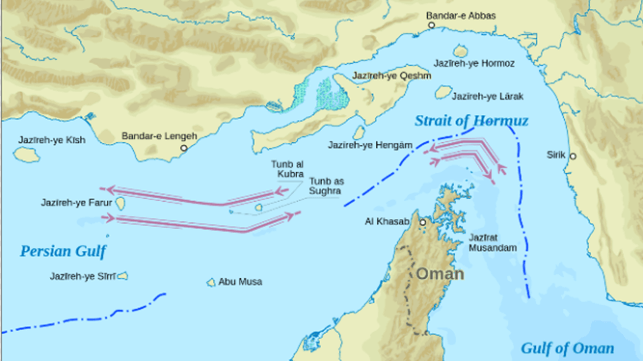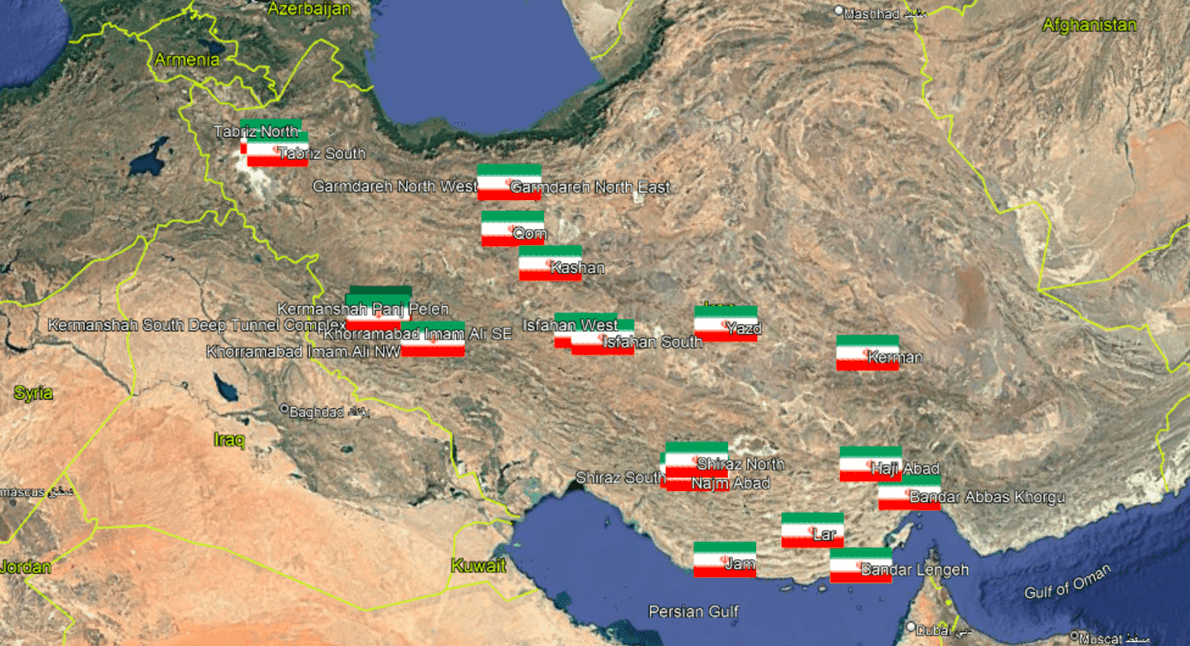Would Iran Close the Strait of Hormuz in a Conflict?

Should Israel mount its promised counter-attack in response to the Iranian missile blitz on Israel at the beginning of the month, Iran certainly has the ability to close the Strait of Hormuz if it wished to do so.
The Iranian coastline overlooks the Strait for more than 100 nautical miles, and Iran has a large number of missiles, drones, naval and aviation systems that could threaten ships in the Strait. Even limited Iranian attacks might be sufficient to close down traffic, should shipping companies be concerned about heightened risk and soaring insurance premiums.
Besides the frigates, missile boats and aviation assets of its regular and IRGC navies, Iran has shore batteries of anti-shipping missiles covering the strait. The IRGC has specialized for years in speedboat swarm attacks on merchant vessels, and it also has a mining capability that would be particularly effective in the shallow and constricted waters of the strait.
But would Iran want to see conflict in the area and a closure of the waterway, which it depends on for its oil exports?
For Iraq, Kuwait, Bahrain and Qatar, the Strait of Hormuz is the only maritime link to the rest of the world; their economies are dependent on imports for basic necessities. Given the dependency of so many nations on oil, China in particular, and the likelihood that Saudi Arabia and the United Arab Emirates would suffer a massive hit to economic confidence if the strait were to be closed, a closure of the strait by Iran would almost certainly be met by some form of military response.
This in turn would close down the ability of Iran to use the strait for its own oil exports. Iran generates 65% of government revenues and 8% of its GDP from such exports. Without oil revenues, the Iranian government would be forced to cut subsidies on fuel and basic foodstuffs, which underpin the low prices enjoyed by Iran’s 91 million people. With a large percentage of the population already deeply unhappy with the government, an increase in prices could generate civil unrest on a scale that would threaten the future of Iran’s rulers and the IRGC security apparatus which keeps it in power.
Leaks from government sources, both in Washington and Tel Aviv, suggesting that Israel has agreed not to attack oil and nuclear facilities need to be treated with some skepticism, given the poor relations between the two administrations. But if attacks on oil and nuclear facilities were to be avoided, this would certainly reduce the risk of Iran resorting to a closure of the Strait of Hormuz.
In any case, Israel is unlikely to have sufficient long-range attack assets to embark upon a wide-scale offensive against oil facilities. It might consider kinetic cyber attacks and sabotage of the type already used against deep-buried nuclear facilities.
Israel will certainly need to focus on destroying as much of Iran’s ballistic missile force as it can in order to prevent an Iranian counter-attack, which could cause widespread casualties and damage to targets in Israel. The attack on October 1 indicates Israel might be vulnerable to a concerted Iranian strike.
With 25 identified ballistic missile sites spread across Iran, each with multiple silos and garaging for mobile drone and missile launchers, Israel will need every available bomb directed at this Iranian ballistic missile and drone infrastructure to cripple and close down any potential Iranian counter-attack.
 25 identified Iranian ballistic missile/drone clusters, each with multiple silos and sites (Google Earth)
25 identified Iranian ballistic missile/drone clusters, each with multiple silos and sites (Google Earth)
Nonetheless, Israel regards Iranian leadership of its Axis of Resistance as critical to the effectiveness of the forces attacking Israel on multiple fronts. If refomists in Iran could supplant religious hardliners who currently dominate the regime and are the driving force behind Iran’s regional expansionism, then Israel might wish to be a catalyst to this process. In this case, a closure of the Strait of Hormuz might bring about such a change, but it would be a huge gamble to believe that this aim could be achieved without a massive risk to global stability.
